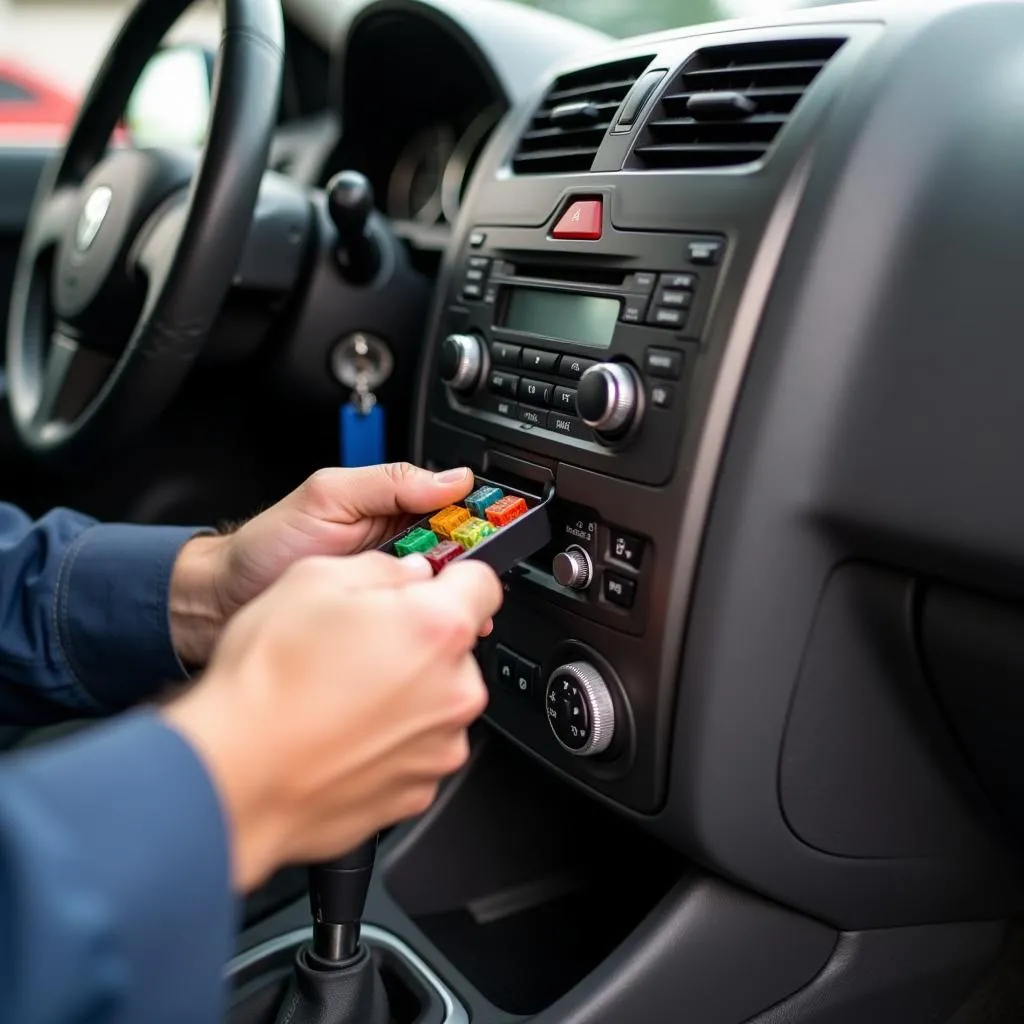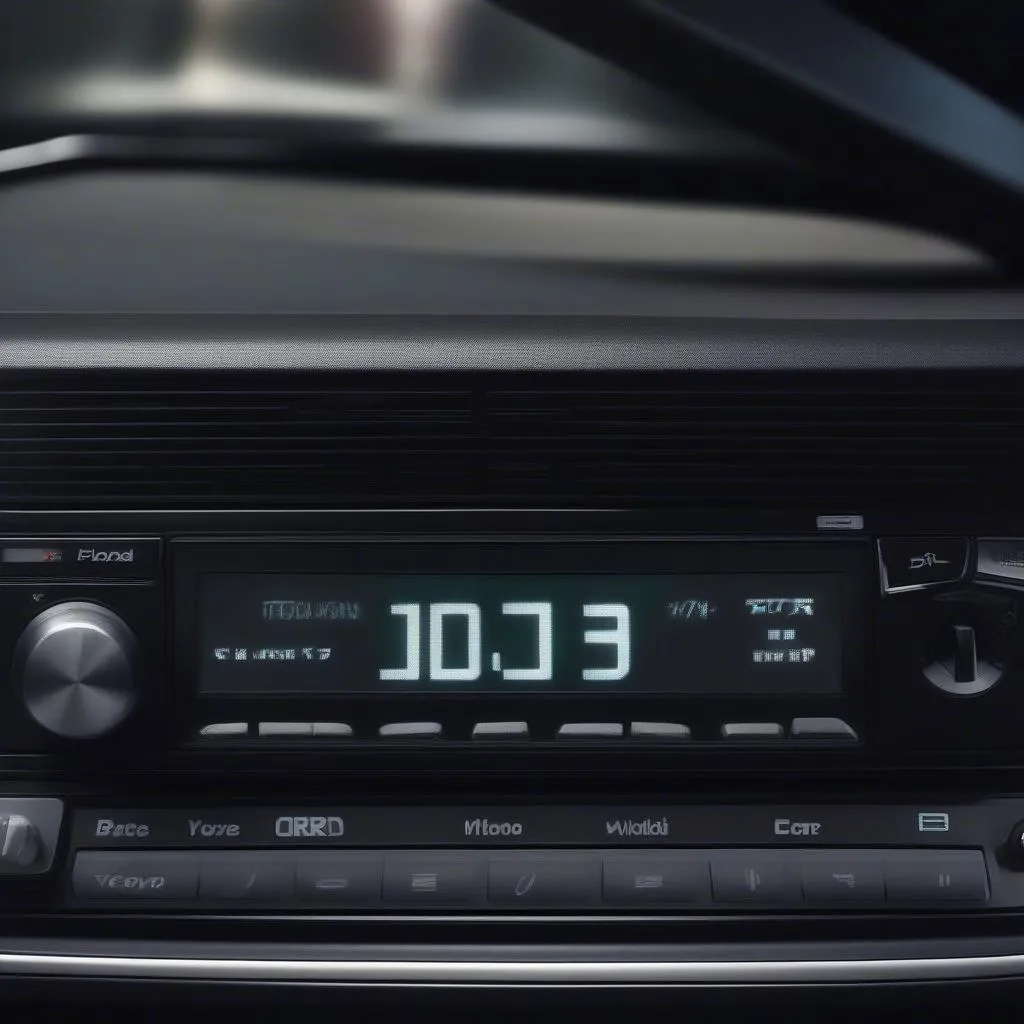The brake warning light on your dashboard is a crucial safety feature, and when it illuminates in your 2000 Toyota Camry, it’s essential to address the issue promptly. Ignoring it could lead to brake failure, putting you and others at risk. This comprehensive guide explores common reasons why your 2000 Camry’s brake warning light might be on and provides potential solutions to help you get back on the road safely.
Understanding Your Camry’s Brake Warning Light System
Before delving into the causes, it’s helpful to understand how your Camry’s brake warning light system functions. The light is part of a closed system that monitors various components, including:
- Brake Fluid Level: A sensor detects low brake fluid, a common culprit behind the warning light.
- Parking Brake: Engaging the parking brake even slightly can trigger the light.
- Brake Pad Wear Sensors: Your Camry has sensors that detect worn brake pads, illuminating the warning light as a replacement reminder.
- ABS System: If there’s a fault within the Anti-lock Braking System (ABS), the warning light may turn on.
Common Causes of a 2000 Camry Brake Warning Light
1. Low Brake Fluid
Why it’s a problem: Brake fluid is the lifeblood of your Camry’s braking system. It transmits the force from your foot on the brake pedal to the wheels, stopping the car. Low brake fluid can significantly reduce braking power, leading to dangerous situations.
Possible causes of low brake fluid:
- Leak in the brake lines: Inspect all visible brake lines for leaks, paying close attention to areas near the wheels and under the hood.
- Worn brake pads: As your brake pads wear down, the caliper pistons extend further to compensate. This can result in a slightly lower brake fluid level.
Solution: If you suspect a leak, consult a mechanic immediately. For worn brake pads, replace them promptly. Top up the brake fluid with the correct type specified in your owner’s manual.
2. Engaged Parking Brake
Why it’s a problem: While seemingly obvious, a partially engaged parking brake can illuminate the warning light.
Solution: Ensure the parking brake is fully disengaged. Sometimes, the parking brake release mechanism might need adjustment or lubrication.
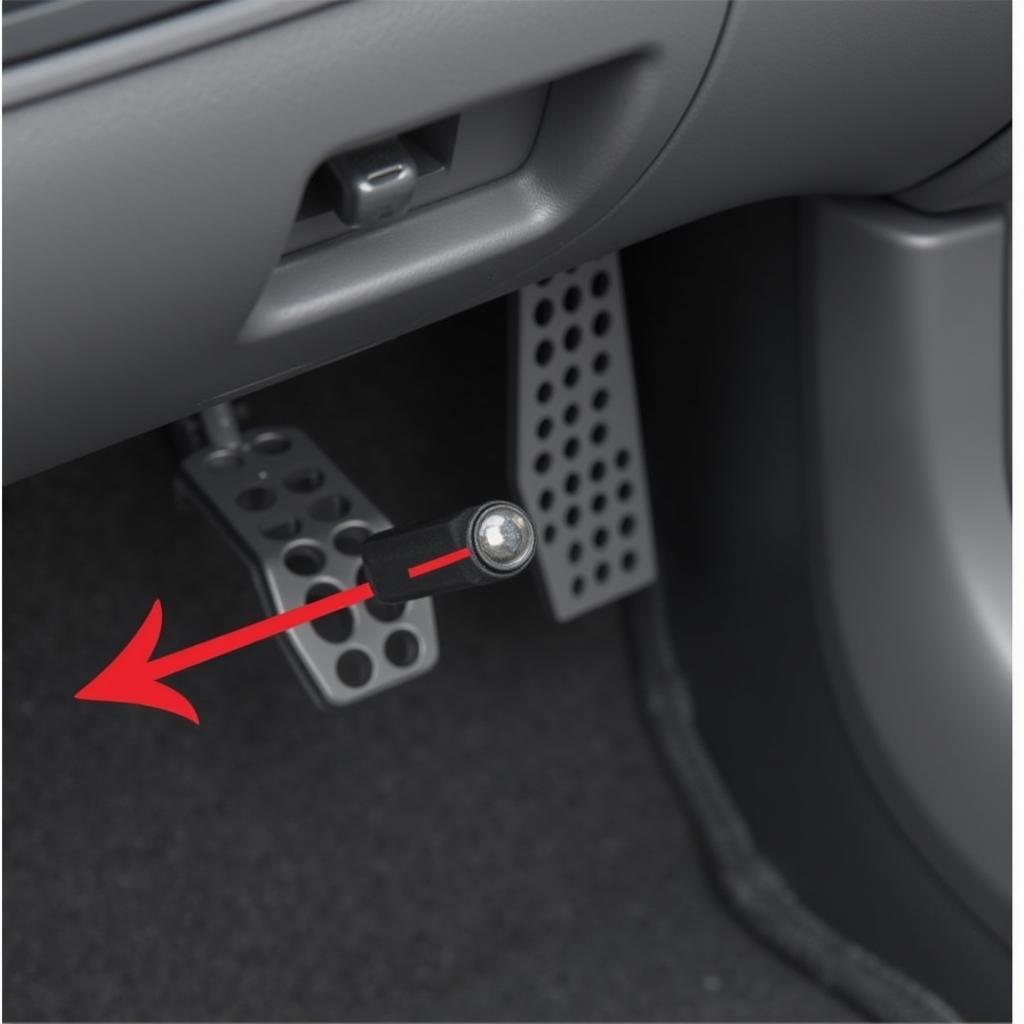 2000 Camry Parking Brake Release
2000 Camry Parking Brake Release
3. Worn Brake Pads
Why it’s a problem: Brake pads are designed to wear down over time. Driving with severely worn brake pads can damage the rotors and drastically reduce braking efficiency.
Solution: If your brake pads are nearing the end of their lifespan, have them replaced by a qualified mechanic.
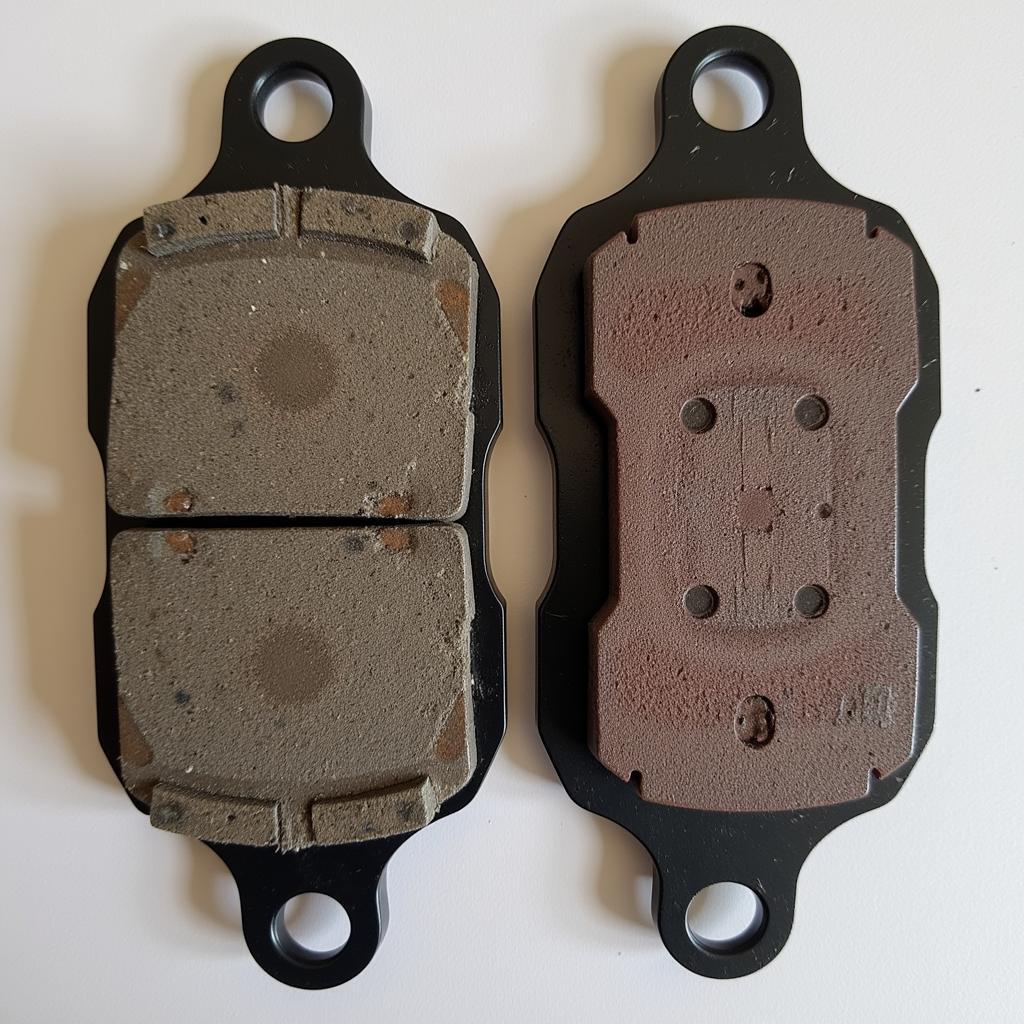 Comparison of Worn Brake Pads and New Pads
Comparison of Worn Brake Pads and New Pads
4. ABS System Malfunction
Why it’s a problem: The ABS system prevents your wheels from locking up during hard braking, allowing you to maintain steering control. A malfunction can compromise your safety, especially on slippery surfaces.
Possible causes of ABS malfunction:
- Faulty ABS wheel speed sensors
- Malfunctioning ABS module
- Damaged wiring within the ABS system
Solution: Diagnosing ABS issues requires specialized equipment. Take your Camry to a qualified mechanic or dealership for diagnosis and repair.
5. Faulty Brake Light Switch
Why it’s a problem: The brake light switch activates your brake lights when you press the pedal. A faulty switch can prevent the lights from illuminating and may trigger the brake warning light.
Solution: A mechanic can test and replace the brake light switch if necessary.
What to Do When Your Brake Warning Light Comes On
- Don’t panic: Remain calm and assess the situation.
- Check your parking brake: Ensure it’s fully disengaged.
- Find a safe place to stop: Pull over to the side of the road or a safe location as soon as possible.
- Inspect brake fluid level: If it’s safe to do so, check the brake fluid level. If it’s low, adding fluid might temporarily solve the issue, but you still need to determine the underlying cause.
- Call a mechanic: If you’re unsure about the cause or uncomfortable inspecting your car, call a qualified mechanic or tow your Camry to a repair shop.
Expert Insights
“Many car owners underestimate the importance of regular brake system checks,” says John Smith, a certified automotive technician with over 20 years of experience. “Brake fluid flushes, timely pad replacements, and inspections can prevent many brake-related issues, including those that trigger the warning light.”
Preventing Future Brake Warning Light Issues
- Regular maintenance: Adhere to the manufacturer’s recommended maintenance schedule for brake fluid flushes, pad replacements, and inspections.
- Be attentive to changes: Notice any unusual noises, vibrations, or changes in brake pedal feel and address them promptly.
- Don’t ignore the warning light: Addressing the issue immediately can prevent further damage and potential safety hazards.
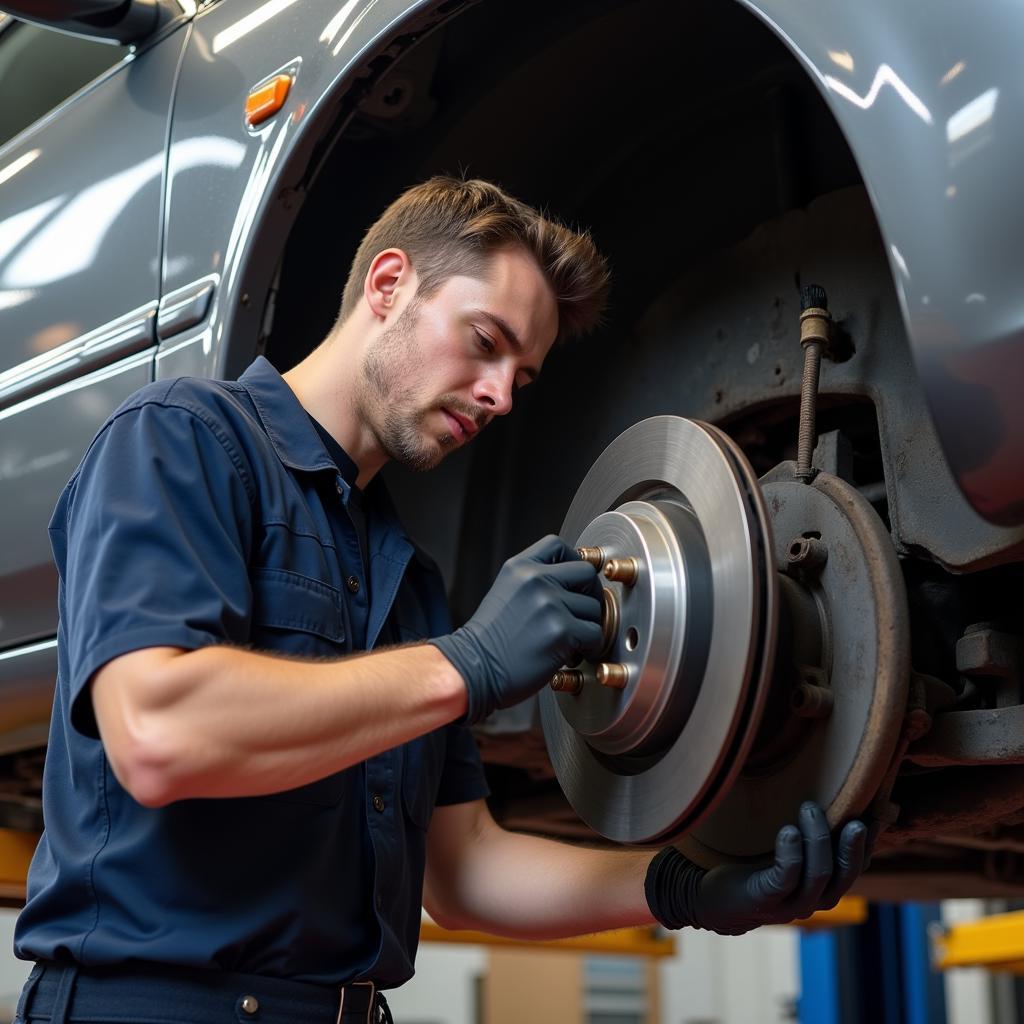 Mechanic Inspecting Camry Brake System
Mechanic Inspecting Camry Brake System
Conclusion
The brake warning light in your 2000 Camry is a serious safety concern that should never be ignored. By understanding the potential causes and taking prompt action, you can ensure the safety and reliability of your Camry’s braking system. Remember, regular maintenance and timely repairs are crucial to prevent future issues and keep you safe on the road.

